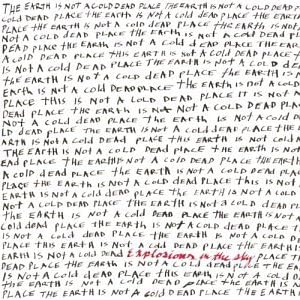Tuesday, April 20, 2004
The Black Bridge
 So, one of the major pieces in Dubya's chess game to a second term has been moved into place. John D. Negroponte, currently our Ambassador to the U.N., has been nominated to be our Ambassador to Iraq. If his nomination is approved, he will head the largest staff (3,000 strong) of any ambassadorship in US history. It's virtually a small army. It's a good thing that Mr. Negroponte's diplomatic experience includes dealing with such an amount of manpower at his control. From "The Nation, (3/11/2002 issue) "John Negroponte was US Ambassador to Honduras and facilitated a clandestine quid pro quo deal, under which the Reagan Administration sent aid to Honduras in return for Honduran assistance to the contras, at a time when Congress had banned the Administration from assisting the contras. Negroponte's embassy also suppressed information about human rights abuses committed by the Honduran military."
So, one of the major pieces in Dubya's chess game to a second term has been moved into place. John D. Negroponte, currently our Ambassador to the U.N., has been nominated to be our Ambassador to Iraq. If his nomination is approved, he will head the largest staff (3,000 strong) of any ambassadorship in US history. It's virtually a small army. It's a good thing that Mr. Negroponte's diplomatic experience includes dealing with such an amount of manpower at his control. From "The Nation, (3/11/2002 issue) "John Negroponte was US Ambassador to Honduras and facilitated a clandestine quid pro quo deal, under which the Reagan Administration sent aid to Honduras in return for Honduran assistance to the contras, at a time when Congress had banned the Administration from assisting the contras. Negroponte's embassy also suppressed information about human rights abuses committed by the Honduran military."
Negroponte is the key now to Bush's re-election plans. No one can put Iraq into a semblance of order in the coming years. In the months leading up to November's presidential election, the best that the president can hope for is the elimination of Iraq related stories from the front pages of newspapers and from the first 5-8 minutes of the nightly news telecasts. What he needed was someone who had vast experience with working behind the scenes. In choosing Mr. Negroponte, he's certainly picked a most highly qualified candidate. With a staff of 3,000 thrown in, Mr. Bush has thrown in enough hands to keep Iraq news to a low murmer.
From their own axe to grind ,Mr. Negroponte spent his entire working life in the service of American imperialism, participating in many of the bloodiest crimes of the post-World War II, including nine years as a State Department official during the Vietnam War and five years in Central America.
Much of his career itinerary reads like a dossier for some future war crimes tribunal:
* 1964-68, political affairs officer at the US Embassy in Saigon;
* 1969-71, aide to Henry Kissinger in the Paris negotiations with the Vietnamese;
* 1971-73, officer-in-charge for Vietnam in the National Security Council, under Kissinger;
* 1973-75, assigned to the US Embassy in Ecuador (he reportedly quit Kissinger’s staff, opposing the Paris settlement as too favorable to the Vietnamese);
* 1980-81, deputy assistant secretary of state for East Asia and Pacific affairs;
* 1981-85, ambassador to Honduras;
* 1987-1989, deputy assistant to the president for national security affairs, reporting to Colin Powell;
* 1989-93, ambassador to Mexico;
* 1993-97, ambassador to the Philippines.
After retiring from the diplomatic corps, he took a well-paid position as vice president for global markets at McGraw-Hill, the big publishing company.
Negroponte’s role is best documented for his term as ambassador to Honduras, a country dominated by US corporations and completely dependent on the US government politically and militarily. The US ambassador in Tegucigalpa is the de facto pro-consul who makes or breaks presidents and generals. At Negroponte’s direction the Honduran military provided protection and assistance to the Contra terrorists. With his tacit permission, if not active encouragement, the Honduran military carried out systematic murders of refugees from war-torn El Salvador and among its domestic opponents in Honduras itself.
During Negroponte’s tenure, US military aid to Honduras grew from $4 million to $77.4 million. Maintaining this aid required the US Embassy to regularly certify that Honduras was in compliance with human rights requirements set down in American laws. Although Jack Binns, who preceded Negroponte as ambassador, had warned about the repressive measures undertaken by the military-controlled regime, Negroponte consistently denied the existence of death squads, political prisoners or politically motivated killings by the Honduran Armed Forces.
He worked closely with General Gustavo Alvarez Martinez, chief of the Armed Forces in Honduras, to send Honduran soldiers to the US-run School of the Americas, where they were trained in psychological warfare, sabotage and many types of human rights violations, including torture and kidnapping. In 1983 the US government awarded the Legion of Merit to General Alvarez.
A CIA-run death squad
The American CIA created the infamous Battalion 3-16 to carry out the murder of Honduran political opponents of the Contra war against Nicaragua. General Luis Alonso Discua Elvir, a graduate of the School of the Americas, was the founder and commander of Battalion 3-16. According to a detailed investigation in 1995 by the Baltimore Sun, Battalion 3-16 kidnapped, tortured and killed hundreds of Hondurans. The unit used “shock and suffocation devices in interrogations. Prisoners often were kept naked and, when no longer useful, killed and buried in unmarked graves.”
The Baltimore Sun reporters found that in 1982 alone, during Negroponte’s first full year as ambassador, the Honduran press carried at least 318 stories of extrajudicial attacks by the military. The US embassy, however, certified the country’s record on human rights in such glowing terms that aides to Negroponte joked that they were writing about Norway, not Honduras. Rick Chidester, a former aide, revealed to the Sun that his supervisors had ordered him to remove allegations of torture and executions from his draft of the 1982 human rights report. When one Honduran legislator complained about the US refusal to denounce the repression, Negroponte told him, “You and others, what you are proposing is to let communism take over this country.”
Significantly, several members of Battalion 3-16, long resident in the United States, were suddenly and swiftly deported after Negroponte’s nomination was announced. In February the State Department revoked the visa of General Discua, the founder of Battalion 3-16, who had been deputy ambassador to the UN for Honduras and stayed on in the US after his term expired. Discua responded by publicly confirming the US sponsorship of his death squad operation.
From April through November 4th, we can expect the mysterious Black Bridge ("Negro" "ponte") to be the main link between the president's appearance of calm control and the Iraqi lack of control. There will probably be hearings about the methodologies and results used by Mr. Negroponte, but these hearings, with their accompanying "I can't believe this happened!"'s and "Shocked, shocked I am at..."'s, will all take place after November 4th. Which will sit well with Mr. Bush and Mr. Negroponte. They'll have an additional 4 years to attend such meetings.
 So, one of the major pieces in Dubya's chess game to a second term has been moved into place. John D. Negroponte, currently our Ambassador to the U.N., has been nominated to be our Ambassador to Iraq. If his nomination is approved, he will head the largest staff (3,000 strong) of any ambassadorship in US history. It's virtually a small army. It's a good thing that Mr. Negroponte's diplomatic experience includes dealing with such an amount of manpower at his control. From "The Nation, (3/11/2002 issue) "John Negroponte was US Ambassador to Honduras and facilitated a clandestine quid pro quo deal, under which the Reagan Administration sent aid to Honduras in return for Honduran assistance to the contras, at a time when Congress had banned the Administration from assisting the contras. Negroponte's embassy also suppressed information about human rights abuses committed by the Honduran military."
So, one of the major pieces in Dubya's chess game to a second term has been moved into place. John D. Negroponte, currently our Ambassador to the U.N., has been nominated to be our Ambassador to Iraq. If his nomination is approved, he will head the largest staff (3,000 strong) of any ambassadorship in US history. It's virtually a small army. It's a good thing that Mr. Negroponte's diplomatic experience includes dealing with such an amount of manpower at his control. From "The Nation, (3/11/2002 issue) "John Negroponte was US Ambassador to Honduras and facilitated a clandestine quid pro quo deal, under which the Reagan Administration sent aid to Honduras in return for Honduran assistance to the contras, at a time when Congress had banned the Administration from assisting the contras. Negroponte's embassy also suppressed information about human rights abuses committed by the Honduran military."
Negroponte is the key now to Bush's re-election plans. No one can put Iraq into a semblance of order in the coming years. In the months leading up to November's presidential election, the best that the president can hope for is the elimination of Iraq related stories from the front pages of newspapers and from the first 5-8 minutes of the nightly news telecasts. What he needed was someone who had vast experience with working behind the scenes. In choosing Mr. Negroponte, he's certainly picked a most highly qualified candidate. With a staff of 3,000 thrown in, Mr. Bush has thrown in enough hands to keep Iraq news to a low murmer.
From their own axe to grind ,Mr. Negroponte spent his entire working life in the service of American imperialism, participating in many of the bloodiest crimes of the post-World War II, including nine years as a State Department official during the Vietnam War and five years in Central America.
Much of his career itinerary reads like a dossier for some future war crimes tribunal:
* 1964-68, political affairs officer at the US Embassy in Saigon;
* 1969-71, aide to Henry Kissinger in the Paris negotiations with the Vietnamese;
* 1971-73, officer-in-charge for Vietnam in the National Security Council, under Kissinger;
* 1973-75, assigned to the US Embassy in Ecuador (he reportedly quit Kissinger’s staff, opposing the Paris settlement as too favorable to the Vietnamese);
* 1980-81, deputy assistant secretary of state for East Asia and Pacific affairs;
* 1981-85, ambassador to Honduras;
* 1987-1989, deputy assistant to the president for national security affairs, reporting to Colin Powell;
* 1989-93, ambassador to Mexico;
* 1993-97, ambassador to the Philippines.
After retiring from the diplomatic corps, he took a well-paid position as vice president for global markets at McGraw-Hill, the big publishing company.
Negroponte’s role is best documented for his term as ambassador to Honduras, a country dominated by US corporations and completely dependent on the US government politically and militarily. The US ambassador in Tegucigalpa is the de facto pro-consul who makes or breaks presidents and generals. At Negroponte’s direction the Honduran military provided protection and assistance to the Contra terrorists. With his tacit permission, if not active encouragement, the Honduran military carried out systematic murders of refugees from war-torn El Salvador and among its domestic opponents in Honduras itself.
During Negroponte’s tenure, US military aid to Honduras grew from $4 million to $77.4 million. Maintaining this aid required the US Embassy to regularly certify that Honduras was in compliance with human rights requirements set down in American laws. Although Jack Binns, who preceded Negroponte as ambassador, had warned about the repressive measures undertaken by the military-controlled regime, Negroponte consistently denied the existence of death squads, political prisoners or politically motivated killings by the Honduran Armed Forces.
He worked closely with General Gustavo Alvarez Martinez, chief of the Armed Forces in Honduras, to send Honduran soldiers to the US-run School of the Americas, where they were trained in psychological warfare, sabotage and many types of human rights violations, including torture and kidnapping. In 1983 the US government awarded the Legion of Merit to General Alvarez.
A CIA-run death squad
The American CIA created the infamous Battalion 3-16 to carry out the murder of Honduran political opponents of the Contra war against Nicaragua. General Luis Alonso Discua Elvir, a graduate of the School of the Americas, was the founder and commander of Battalion 3-16. According to a detailed investigation in 1995 by the Baltimore Sun, Battalion 3-16 kidnapped, tortured and killed hundreds of Hondurans. The unit used “shock and suffocation devices in interrogations. Prisoners often were kept naked and, when no longer useful, killed and buried in unmarked graves.”
The Baltimore Sun reporters found that in 1982 alone, during Negroponte’s first full year as ambassador, the Honduran press carried at least 318 stories of extrajudicial attacks by the military. The US embassy, however, certified the country’s record on human rights in such glowing terms that aides to Negroponte joked that they were writing about Norway, not Honduras. Rick Chidester, a former aide, revealed to the Sun that his supervisors had ordered him to remove allegations of torture and executions from his draft of the 1982 human rights report. When one Honduran legislator complained about the US refusal to denounce the repression, Negroponte told him, “You and others, what you are proposing is to let communism take over this country.”
Significantly, several members of Battalion 3-16, long resident in the United States, were suddenly and swiftly deported after Negroponte’s nomination was announced. In February the State Department revoked the visa of General Discua, the founder of Battalion 3-16, who had been deputy ambassador to the UN for Honduras and stayed on in the US after his term expired. Discua responded by publicly confirming the US sponsorship of his death squad operation.
From April through November 4th, we can expect the mysterious Black Bridge ("Negro" "ponte") to be the main link between the president's appearance of calm control and the Iraqi lack of control. There will probably be hearings about the methodologies and results used by Mr. Negroponte, but these hearings, with their accompanying "I can't believe this happened!"'s and "Shocked, shocked I am at..."'s, will all take place after November 4th. Which will sit well with Mr. Bush and Mr. Negroponte. They'll have an additional 4 years to attend such meetings.
Comments:
Post a Comment
<< Home Verging on Pertinence Just some more disposable thoughts clogging up the hinterlands
<< Home Verging on Pertinence Just some more disposable thoughts clogging up the hinterlands
















